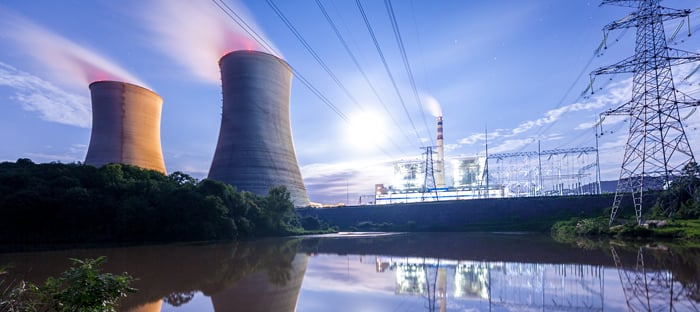Power your home
Enjoy price security with Safe Harbor fixed price energy plans

Power your business

Loading component...
Loading component...
Energy Resources

Chances are, when you flip a light switch, turn on a television or boil a pot of water, you aren’t thinking about what goes into delivering power to your home. In fact, most people only think about how electricity is generated and delivered when something goes wrong – like during an outage.
Understanding how electric generation, transmission and maintenance work can help you become a smarter energy customer and could also help you save money and make more sustainable choices.
Three types of companies work together to make electricity available to your home or business: the electric generation company, the electric supply company and the local utility. Each play an important role in how electricity is generated, distributed and serviced.
Creates electricity to sell in the market.
Buys the energy wholesale and offers it to consumers.
Delivers power from grid to user and maintains power lines and utility poles.
Nearly 10,000 utility-scale power plants across the country contribute electricity to the energy grid, generating more than 4 trillion kilowatt hours per year. The most common sources used for electric generation are natural gas, coal, nuclear and a variety of renewables.
Electric generation companies operate the plants that power the grid. Other entities work with electric generation companies to ensure the volume of electricity generated for the grid, also called capacity, is enough to meet the demand.
Energy suppliers, like Energy Harbor, sell energy to residential, commercial and industrial customers. They offer choices for consumers who prefer to shop for fixed rates and more sustainable energy options than their local electric company can offer. An electric supply company typically purchases energy in bulk from generators through the wholesale market.
What you pay for electricity each month covers the cost of generation, supply and maintenance. While states differ in how these charges are presented, there is always a supply portion and delivery portion within your monthly charges. If you do not choose an electric supply company, your local electric company is typically the default supplier.
Utility companies are responsible for the reliable delivery of electricity to your home or business. This includes maintaining power lines and poles, reading meters and restoring power after an outage. Think of the local electric company like a package delivery person. When you purchase an item online, the delivery person’s job is to make sure it arrives safely to your home, no matter where you bought it or how you intend to use it.
Learn how electric utilities charge customers for their electricity
Until recently, many customers had no options for their electric supply. Their local electric company was the only choice. Today, thanks to Energy Choice, customers can easily shop for and compare energy suppliers. This increased competition means customers can find a variety of options from suppliers, including fixed rates and longer-term contracts that offer control over seasonal rate changes. Additionally, with some competitive suppliers, you can choose your source for power, allowing you to choose more sustainable, carbon-free plans. It’s important to keep in mind that while a supplier may be able to offer a lower rate, this is only the supply portion of your electric bill. See which numbers on your electric bill you can impact to save money or enter your zip code to see which Energy Harbor plan might be right for you.
Enter your zipcode to find 100% Green plans in your area.